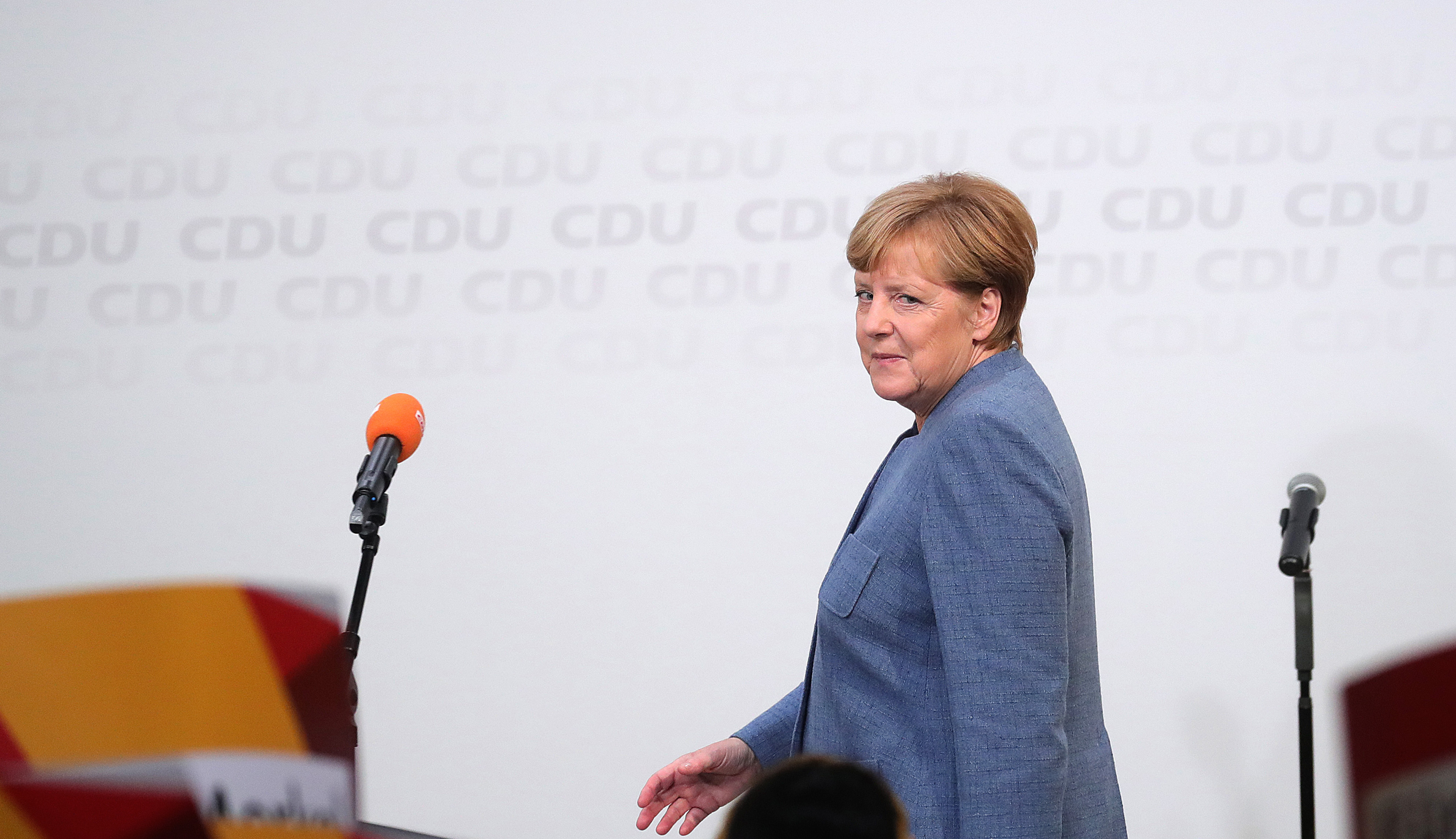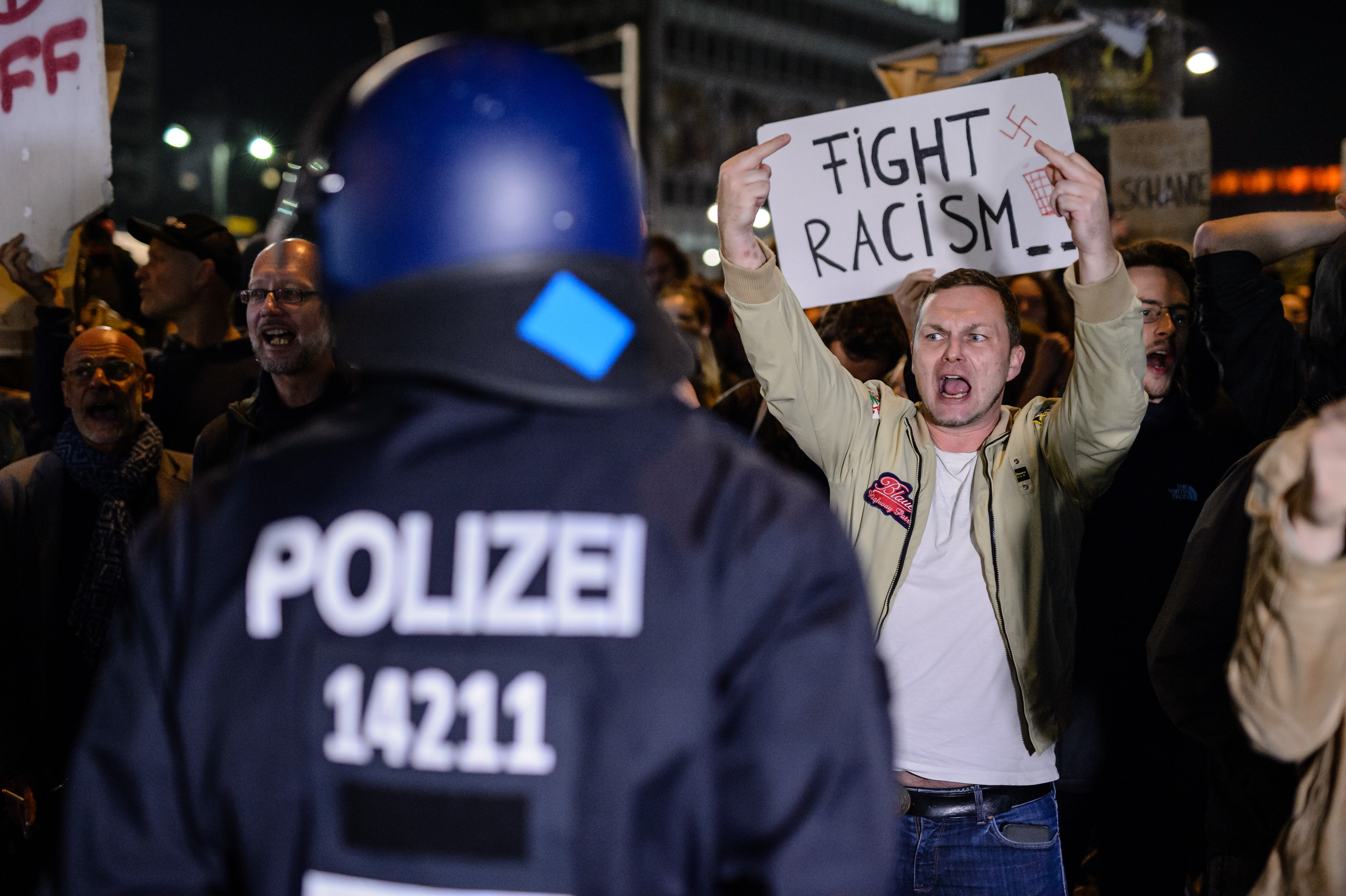
Politics & Society
Four things you need to know about the German election

A party with Nazi elements has become the third force in German politics, as Merkel’s grip on power is weakened
Published 25 September 2017
As the dust settles on the German election, it seems the political instability that’s been seen throughout the West has now arrived in Germany.
Angela Merkel will serve an historic fourth term as German Chancellor, but her party has been significantly weakened. Her coalition partner, the Social Democrats (SPD), achieved their worst ever election result with just over 20 per cent of the vote, and together with Dr Merkel’s CDU/CSU (with 33 per cent) the two main centrist parties now account for barely more than half the votes.

Meanwhile, the far-right Alternative for Germany (AfD) party has stormed into the German parliament with 13 per cent of the vote.
The SPD has been damaged electorally by its association with Dr Merkel’s government. The Chancellor has been able to take credit for SPD-initiated reforms like the introduction of a minimum wage and same sex marriage, and yet both parties are tarnished by her handling of the refugee crisis, which saw an influx of close to a million refugees.

Politics & Society
Four things you need to know about the German election
SPD leader Martin Schulz has lambasted Dr Merkel’s centrism, calling her a “hoover of ideas”, who takes on any policy she needs to in order to maintain power. He has declared his party would move to opposition and seek to disrupt Germany’s centrist political status quo.
If Mr Schulz stays true to this intention, the most likely coalition for Dr Merkel is a ‘Jamaica’ coalition of the the economically right-wing Free Democrats (yellow), CDU/CSU (black) and the Greens (green).
Such a coalition would represent a breathtaking breadth of policy positions, from the right-wing CSU (the Bavarian sister party to the CDU) to the Greens on the left. In the middle, the resurgent Free Democrats have been accused of flirting with far-right voters during the election campaign.
The rise of the anti-immigration Alternative for Germany (AfD) party has already caused consternation in Germany. They are the biggest winners of the election, moving from a disorderly party of right-wing, nationalist protest to the third force in the Bundestag, probably with around 90 members.

While the more mainstream parties focused on bread-and-butter issues during the election campaign, including pension scheme reform, aged care, education, employment and the EU; the AfD campaigned on the refugee crisis, the spectre of Islamification, and the suggestion that Germany’s national identity would be destroyed by immigration. In the final week of the campaign, their supporters dogged Dr Merkel’s campaign events, shouting and blowing whistles to drown out her speeches.
In a call reminiscent of US President Donald Trump’s divisive electioneering, one of the AfD’s two lead candidates Alexander Gauland has vowed to “hunt down” the Chancellor and “reclaim our country”; and the party campaigned on a platform to hold an investigation into her handling of the refugee crisis.

Politics & Society
Why action on climate change isn’t an issue for Germans
Around a million voters switched from Dr Merkel’s CDU/CSU to the AfD this election, and support was twice as high in the former East Germany than in the West.
Protests at the rise of the AfD began on election day, with many taking to the streets in Berlin. The hashtag “#87Prozent” (referring to the 87 per cent of voters who didn’t vote for the Afd) trended on Twitter immediately after the result, as a reminder that the vast majority of German voters shunned the AfD.
But the party now has a secure footing in parliament, with all the resources that entails. The question of how to deal with it is now urgent for other members of the Bundestag.
The other parliamentary parties are united in opposition to the AfD, but they have differing ideas of how to respond to them. The Bavarian CSU, which pushed unsuccessfully for tougher refugee policies within Dr Merkel’s government, says it wants to “close the right flank” of German politics, indicating tough times ahead for the Chancellor.
The Free Democrats leader Christian Lindner has called for the media and politicians to put pressure on the AfD’s vague policies and turn a blind eye to some of its attention-grabbing statements.

Politics & Society
Merkel’s refugee stance paying off ahead of German election
The latter is something the Left Party, the Greens and the SPD are reluctant to do. The Left Party has condemned the way in which the media relegated core social issues to the margins of debate during the campaign, allowing the AfD to set an agenda around resentment of refugees and a revival of nationalism.
Representatives of the AfD have recently suggested that Germany could be rightly proud of its WWII soldiers, that the Berlin Holocaust Memorial is “a monument of shame”, and that a Turkish-background government minister should be “disposed of in Anatolia”. That such extremist views may now be uttered within the parliament is a worrying development in Germany, where open acknowledgement of WWII guilt has long been a consensus position.
A far-right party with Nazi elements has become the third force in the German parliament and the make-up of Dr Merkel’s fourth coalition remains uncertain. All that is clear is that German politics is set to become more volatile than it has been in decades.
A version of this article has been co-published with The Age and Election Watch
Banner image: Getty Images